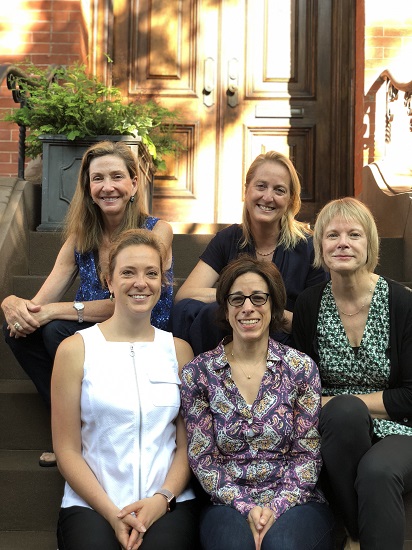How a Brooklyn giving circle sets a trend in charity
ALLINBKLYN, a local philanthropy composed of 60 women, has given away nearly $1 million since its recent founding

ALLINBKLYN, a women’s philanthropic initiative, doesn’t just write checks and wish people well. Its 60 members get to know their borough and their subjects intimately. Father Jim O’Shea, a priest and social worker who runs a non-profit in Bedford-Stuyvesant, saw their immersive approach firsthand. “They’re very hands-on in terms of coming and visiting,” says O’Shea. “They always send different teams. Three or four women will come, they’ll see what’s happening.”
O’Shea’s organization, Reconnect Brooklyn, helps young men who are disconnected from traditional support systems. The project employs the youths at businesses that have included a bakery, a cafe, and an apparel business, which the women of ALLINBKLYN have supported with grants. “They’ll come into the cafe, they’ll drink coffee and talk to the guys,” he recalls. “They’re just very engaging. It’s Brooklyn neighbors helping Brooklyn neighbors. And they’ve come upon a very powerful way to do that.”
ALLINBKLYN is modeled on the traditional giving circle, a form of philanthropy in which a group of people pools its individual donations–as well as its ideas and research–in order to have a larger impact. Nationally, women-led giving circles, often focused on social causes, are a growing form of philanthropy. Since ALLINBKLYN’s founding in 2014, it has made 61 grants to 35 Brooklyn non-profits, giving away nearly $1 million.

Brooklyn Boro
View MoreNew York City’s most populous borough, Brooklyn, is home to nearly 2.6 million residents. If Brooklyn were an independent city it would be the fourth largest city in the United States. While Brooklyn has become the epitome of ‘cool and hip’ in recent years, for those that were born here, raised families here and improved communities over the years, Brooklyn has never been ‘uncool’.